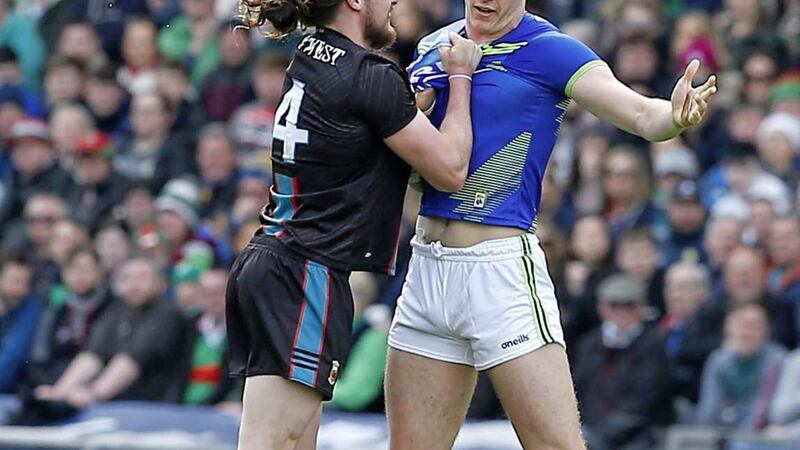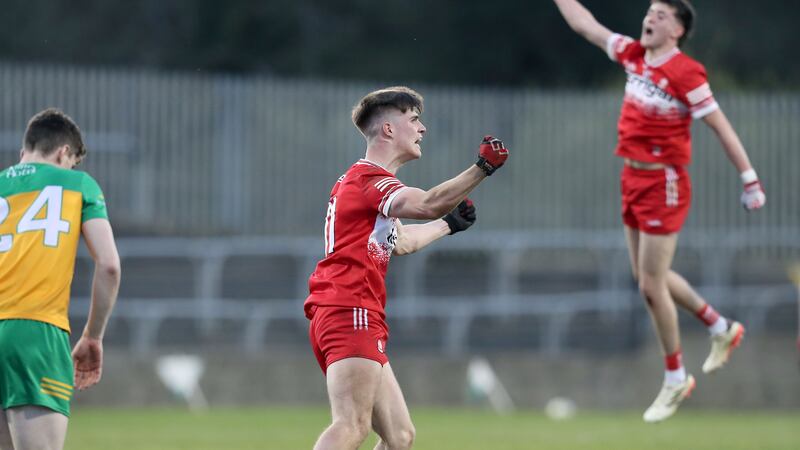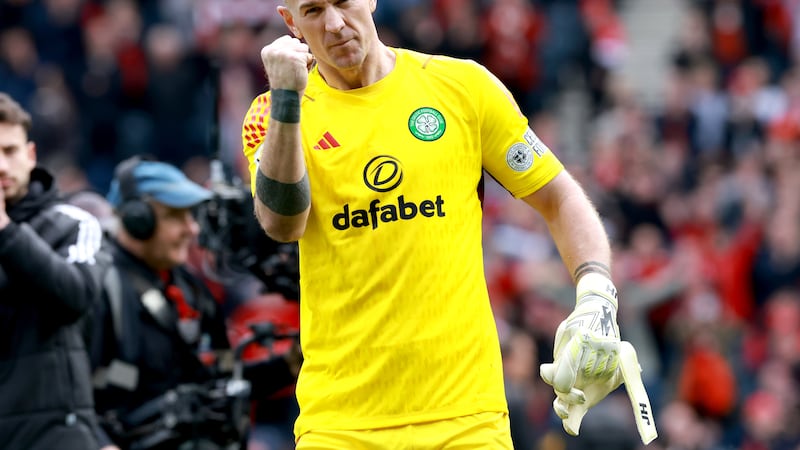DISCIPLINE, defined as the ability to obey rules, is a fundamental of all walks of life. For me personally my disciplinary record isn’t the worst (yes, I know I have had my fair share of yellow cards) but I think discipline off the field and discipline on the field, while being completely interlinked, are two different things.
As a footballer (or any sportsperson), off the field we are disciplined in our training, our nutrition, our rest, our recovery, our sleep – every part of the preparation towards making it on to the field of play requires strict self-discipline.
When playing at inter-county level there is no denying that football needs to be your number one focus and you build everything else around your preparations so that your performance on the field can be the best you can offer. This requires serious discipline, saying no to nights out, weddings and holidays becomes the norm. Maintaining this level of commitment and discipline is very difficult but without full commitment we can’t expect to be the best.
Discipline on the field of play is a lot harder to manage and control, especially with the pressures of play, the influence of the crowd and opponents ‘sledging’ throughout the game.
We have seen frustrations building and tempers boiling over a few times throughout the League this year and teams suffering the repercussions.
Before a game, teams will go through various levels of preparation including knowing who you are likely to be marking and their style of play and temperament. Particularly at club level where players are more likely to know each other personally, provoking a reaction from the person you are marking can be ‘easier’. In my early career, I would have been sent off for the Moy numerous times as opponents knew I would react when provoked and ill-discipline would prevail.
From memory I have only received one straight red card at county level which was for kicking Kevin Cassidy in a Dr McKenna Cup game in Edendork – a silly and petulant thing to do but I put it down to age and inexperience at the time. (I’ve tried using that excuse for other indisciplines on the field over the years, but referees never bought it unfortunately.)
As I got older, I did try to walk away from any confrontations on the field, but I am a firm believer that we need to show a passion for the game and have that spark but learning to channel that drive and ambition correctly does take experience.
“Keep your discipline” is a phrase which will be said in most, if not all, pre-match and half-time team talks. Both management and players talk about it regularly but understanding what it means and what it looks like in practice is key to success for any team.
There are the obvious indisciplines - not striking someone, not getting involved in a melee, not running to get involved in someone else’s altercation, which we all do our best to avoid. Not only do events like these have the potential to cause injury but they also ruin the reputation of our game for spectators.
Tyrone, Armagh, and Donegal have all suffered the wrath of the referee and the CCC recently for such indiscipline. I can fully understand that frustrations that can be built up, especially when playing neighbouring counties or against teams who you have played many times over the years and in the heat of the moment, in a game that must be won, that spark ignites, and tempers fray.
Trying to contain that passion, especially if the opposition are getting personal, is very difficult.
Aside from physical discipline, there is also a greater awareness now of sledging and the effects of verbal indiscipline. This has been brought under the spotlight again since the Kerry v Mayo game on Sunday where Padraig O’Hora was noted as being overly verbal in his match-up with David Clifford.
Clifford was more than fit for him and did answer back to some of the comments made on the pitch, but the level of self-discipline shown by Clifford was remarkable. He continued to do his job, he wasn’t put off his game and he produced an outstanding display which silenced even the harshest of critics.
There are other levels of discipline on the field aside from physical and emotional discipline. We must be disciplined to do what is asked of us by management on any given day. We may be asked to man-mark a player or play a more defensive role than we like but we must follow the game plan and do what is needed for the good of the team.
We have to show discipline in playing the ball to the right man in the right position at the time even if we think we could maybe do it ourselves we have to be selfless in discipline too.
All these things play a massive role in a team environment, don’t get me wrong, sometimes using your own creativity and deviating from a plan will work, however having the whole squad being disciplined in a collective aim normally prevails. The level of discipline required to play football at inter-county level is phenomenal, but the level of discipline required to stay on the field of play at club level is an entirely different thing – something I am still working on in these twilight years and don’t think I will ever master.








